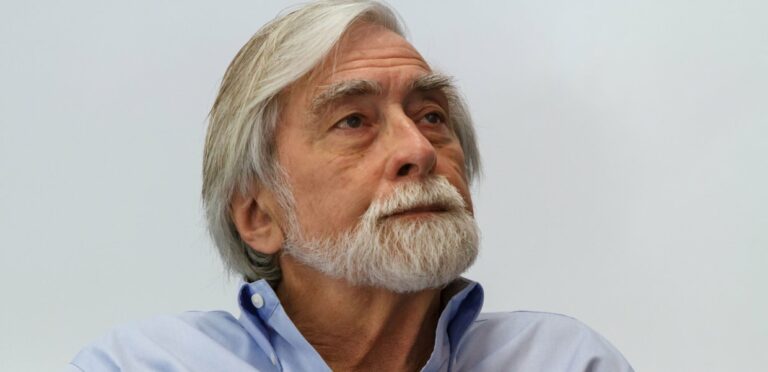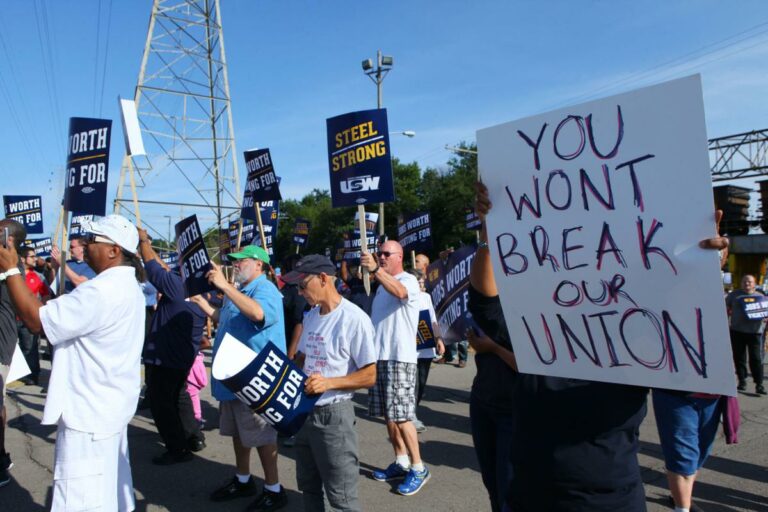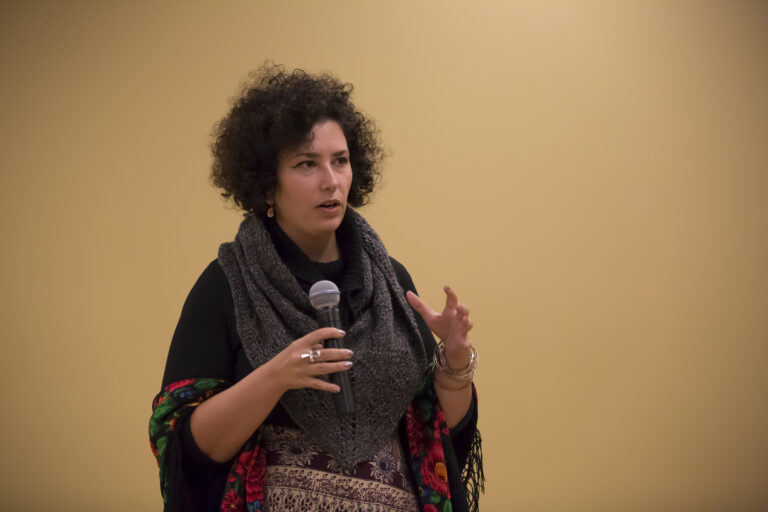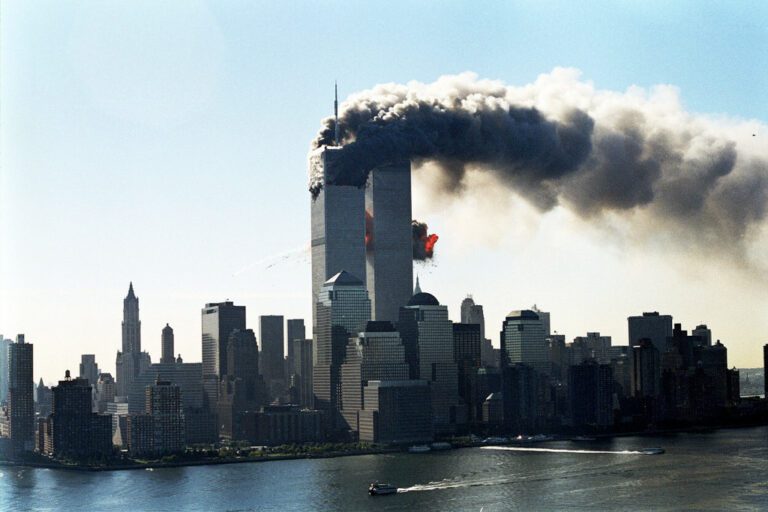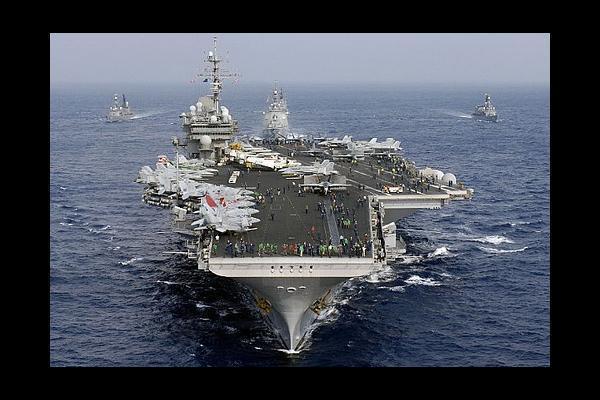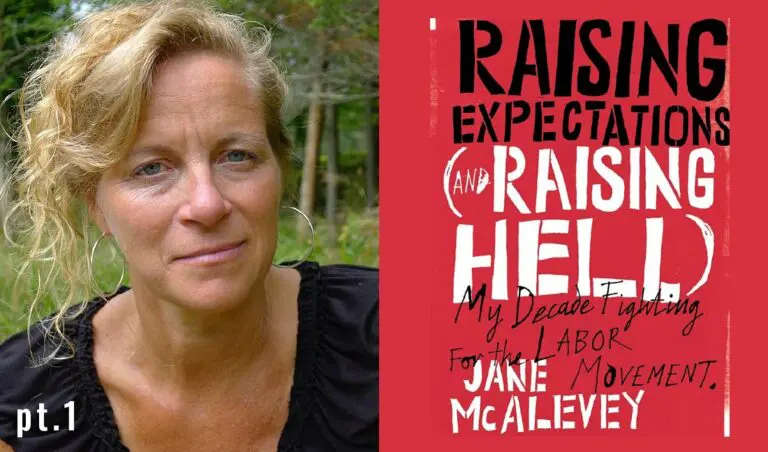This interview was originally released on April 15, 2014. Mr. Lander traces the history of Venezuela from the rise of neo-liberal capitalism to the suppression and slaughter of protesters against it.
PAUL JAY, SENIOR EDITOR, TRNN: Welcome back to The Real News Network. I’m Paul Jay, and this is Reality Asserts Itself.
We’re continuing our interview series about Venezuela, and we’re now kind of switching gears into the modern history of Venezuela.
And we’re joined again by our guest Edgardo Lander. He’s a sociologist and professor at the Central University of Venezuela in Caracas. He’s one of the main organizers of the World Social Forum in 2006, which took place in Caracas. He holds a degree in sociology from the Universidad Central de Venezuela in Caracas and an MA and PhD in sociology from Harvard University.
Thanks for joining us.
PROF. EDGAR LANDER, UNIVERSIDAD CENTRAL DE VENEZUELA IN CARACAS: Thanks, Paul.
JAY: So, in ’73, Pérez comes to power.
LANDER: In 1973, Carlos Andrés Pérez becomes the third president elected from Acción Democrática. There have been two presidents from Acción Democrática, then Caldera, who was the Christian democrat, and then Carlos Andrés Pérez, who was sort of a new generation in Acción Democrática.
But it so happened that oil prices increased to such an extent that same year that the national budget was multiplied by four from one year to another.
JAY: This is the ’73 War, and the Arab countries decide they’re not going to send as much oil to the West.
LANDER: Yup. And as a consequence, there’s a sort of cultural transformation in Venezuelan society, this notion that Venezuela’s a rich country, that it’s got this incredible abundance of oil, and oil prices are going to continue to increase and increase forever. So the government starts to invest massively in infrastructure and new industries, and salaries are increased all over the place. There’s full employment. I mean, there’s a sort of dynamic of massive increase of consumption.
This doesn’t spread to the whole of Venezuelan situation. It’s–of course, it’s more concentrated on the upper middle classes. But the whole culture, the whole notion that this is a rich country that’s going to become richer and richer does spread to the whole of the population.
JAY: Now, Pérez nationalizes the oil company. [incompr.] correctly, he nationalized iron. What’s–that couldn’t have been so favorably received by the U.S.
LANDER: Well, the nationalization of the oil company was really a negotiation. Since in Venezuela, as I said before, oil belongs to the state, it’s never given over to the companies, but it’s the right to explore oil for a certain amount of time, for 20 years, for 30 years, or whatever. But after that, it stops. I mean, they have to renegotiate the whole thing. And most of the major fields were now getting to a point where they would return to the state. So there was a negotiation for the nationalization, so-called, when it was close to the moment where the oil fields were going to become state property again. So it wasn’t a big confrontation. There wasn’t–. And there were contracts signed for technological and financial support [incompr.] allow for the oil companies to continue working in the country.
JAY: So this wasn’t seen as a challenge to either the oil companies or the United States.
LANDER: No, not really. Not really. The fact that oil becomes such a huge part of Venezuelan economy means that it became part of Venezuelan society and Venezuelan politics and the Venezuelan state. As more and more income came in from oil, many things happened to Venezuelan society. There was mass migration to the cities. There was an abandonment of agriculture in general.
From the very beginning of oil exploitation, the Venezuelan currency became overpriced. As a consequence, Venezuela had what was later called the Dutch disease, but much before the Dutch ever had it, which meant that as a consequence of the currency exchange rate, it has been for almost a century now cheaper to buy things from abroad than to produce them nationally. And it’s hardly possible to produce anything in Venezuela, apart from oil, that can be sold out of Venezuela, because of the exchange rate.
So this overvalued currency sort of transformed the whole productive apparatus in Venezuela. Venezuela was an agricultural country that lived, basically, off exporting agricultural products, cocoa and then coffee. Completely sort of displaced these activities for oil.
But at the same time, there was a huge change in the political system, because the transition to democracy meant that the parties that were created in this transition to democracy, especially after 1958, were parties that were basically state parties, parties that were sort of going between state and the population. People voted for parties in terms of how the oil income was going to be distributed and what each party offered from the state. And so the whole political system became absolutely state-centered, but oil-centered.
About the same time, there was a rentier culture that was sort of deeply entrenched in Venezuelan society, which is this idea that since we’re a rich country, since we have that much oil, since we deserve to have free oil and free gas because it’s our–this sort of whole culture of rights. And this led to a very sort of corrupt political system, because the people who had the means to distribute in one direction or another had enormous power and an enormous amount of possibilities of corruption.
But at the same time, the oil distribution that came from the state meant that even the sectors of the economy that prospered–manufacturing industry, imports, [incompr.] etc.–were successful to the extent that they were subsidized by the state. So we had sort of a state-created national bourgeoisie, because it depended on subsidies [incompr.] by the state.
And so it led to a situation–and that’s part of the problem in Venezuelan society today–in which there was hardly a single area of Venezuelan society that was autonomous from the state.
JAY: That was autonomous.
LANDER: Yeah. Everything was sort of in some way linked to the state or dependent on the state. And these parties managed–especially these two main parties, and especially Acción Democrática, the social democratic party, managed to sort of extend their grips to the whole of Venezuelan society as intermediates between the state and society.
JAY: Which is all about everybody trying to get some either lion’s share or trickle of the oil wealth.
LANDER: Yep. Yep. In Venezuela during that period after 1958, no matter where you looked, this presence of these two parties sort of distributing the spoils was there. When I was in high school and we had elections, they were sort of the candidates from Acción Democrática, the candidates from the Christian democrats, and the Communists. But if there was an election of the president of the national symphony orchestra, the candidates were from Acción Democrática or Copei. And if there was a social club, same thing. So it was like the whole country was sort of under the wings of this type of political system.
JAY: And you make a choice who you’re going to–which party you’re going to be allied with, because I know someone who knows someone who can get you a job or get you something, a contract or something.
LANDER: Yeah.
But as a consequence, the sort of–the creation of networks of so-called civil society (a word that in Venezuela has a different meaning than in other parts of the world) was really very weak. There weren’t very many types of grassroots associations that were autonomous from the state. And this has enormous consequences in terms of how the political system works.
JAY: So in ’89 what happens?
LANDER: This whole system was based on high oil income and redistribution, and the fact that Acción Democrática basically–also Copei, but Acción Democrática was really to some extent a national popular party, which means that it was widely–it widely covered the country. In Venezuela, when you–and people used to say that if you went to the smallest village, you would find the Acción Democrática house and the house of Polar, which is the main beer producer. Those were the two sort of things that were common across the country. These parties had sort of a party structure. They had local assemblies and they had weekly meetings of their membership. I mean, they were national popular parties that really existed as such. But as time went by–.
JAY: So in 1989, there’s the Caracazo protests. What was that about, and what happened?
LANDER: In the years previous to the Caracazo, there had been a sort of progressive deterioration of the legitimacy of the democratic system in Venezuela. There was more corruption, the parties having transformed from sort of national grassroots organizations with people participating as a party to just sort of electoral elites that competed just on television, nothing much more.
But apart from that, for Venezuela, due to the central role of oil, instead of the income per capita, you get a better idea of what the situation in Venezuela is like distributing oil income per capita. And that has been going down for quite a while, so less legitimate parties, a serious economic situation in which the price of oil had gone down, the national debt, and pressures from international financial institutions to adopt adjustment policies.
Carlos Andrés Pérez was elected for the second time offering expansive economic policies, offering full employment, offering sort of a new era of Venezuela as a rich country–Saudi Venezuela.
JAY: Which meant government spending, stimulus, jobs programs.
LANDER: Yup. And subsidies.
But a week after he was elected, he signed this agreement with the International Monetary Fund to carry out a whole set of adjustment policies corresponding to the whole agenda of the Washington Consensus.
JAY: Which is the opposite of jobs and social safety net and all the rest.
LANDER: Absolutely the opposite of what he had offered.
Amongst that, an increase of–significant increase in the price of gas, which led to the increase in the price of public transportation. And that set up the initial movements that led to the Caracazo.
The Caracazo was the most widespread popular sort of revolt in Venezuelan history in terms of how it sort of worked out. It had no leadership. It was just sort of a populist, spontaneous reaction, which was sort of magnified by the media. And for two or three days, all the major cities in the country were sort of mobbed by people who were assaulting supermarkets and then distributors of all sorts of other stuff.
And after three days, the government decided to take out the army and just kill whoever was in the way, and it was the most massive repression ever. Hundreds, maybe thousands of people were killed. And that was, like, the coup for the democratic legitimacy of that whole period in Venezuela. That was the end of it. After that, it was obvious that this was a completely illegitimate–not government, but system.
JAY: And one of the people watching this was Hugo Chávez, who was in the army.
LANDER: He was sent out to repress people.
JAY: He was sent out.
LANDER: Yeah. Yeah. And he confronted the fact that his orders were to repress or kill. That had a huge impact on his vision of Venezuela and the role of the military.
JAY: And it’s only, what, three years later that he’s involved in a coup, has come to the conclusion the government is so illegitimate that he would try to form a coup, organize a coup out of the Armed Forces. And it fails.
LANDER: Yeah. He had been organizing within the Armed Forces with some connections [incompr.] part of the left in this sort of very nationalist vision of the things that had to change in Venezuela from some time before.
But he was basically unknown. I mean, he was a colonel in the army. Nobody knew who the hell he was. When he came out on television that night after the coup and it was sort of the first time most of Venezuelans were exposed to him.
JAY: Alright. So in the next segment of our interview, we’ll pick up the Chávez story, ’cause it’s a rather dramatic moment when he organizes the coup, it fails, and then he goes on television.
So we’ll pick this story up with Hugo Chávez and the beginning of the Hugo Chávez era of Venezuelan history with Edgardo Lander on Reality Asserts Itself on The Real News Network.
Never miss another story
Subscribe to theAnalysis.news – Newsletter
“Edgardo Lander (born 1942) is a Venezuelan sociologist and left-wing intellectual. A professor emeritus of the Central University of Venezuela and a fellow of the Transnational Institute, he is the author of numerous books and research articles on democracy theory, the limits of industrialization and economic growth, and left-wing movements in Latin America.”










